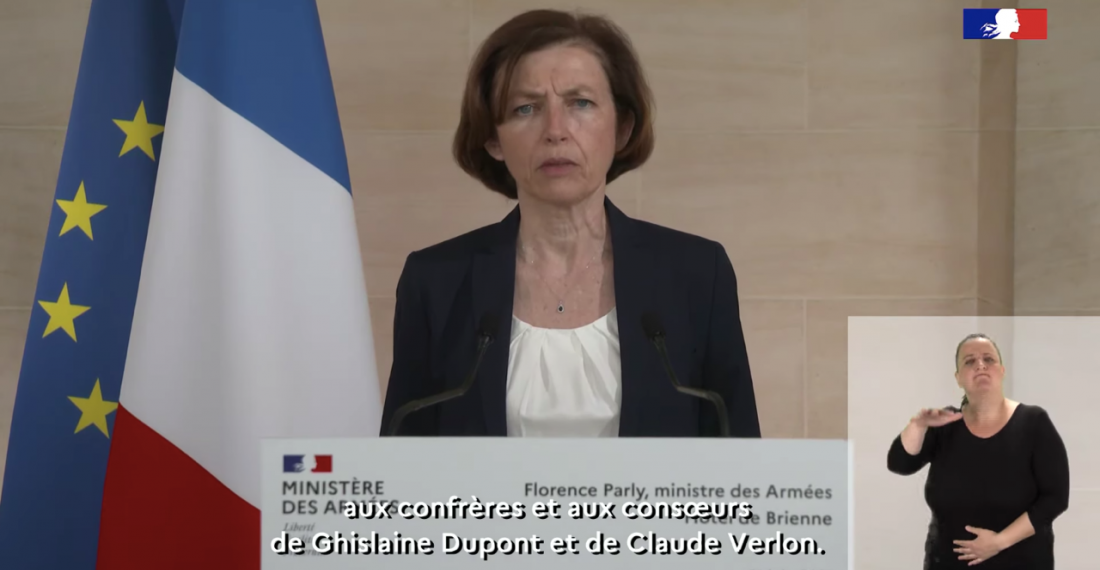On Friday 11 June, France’s minister of the armed forces, Florence Parly, announced the death of a commander of the Islamist militant organisation Al-Qaeda in the Islamic Maghreb (AQIM). On 5 June the Barkhane force of the French army reportedly killed Baye ag Bakabo, who was responsible for the kidnap and murder of two RFI journalists, Ghislaine Dupont and Claude Verlon, in Kidal, Mali, in November 2013.
"On 5 June during the day, the Barkhane force detected an attack in preparation against a UN stronghold in Aguelhok in northern Mali. An operation was then launched against an armed terrorist group which was preparing to unleash mortar fire on the area occupied by the Chadian Minusma (UN) battalion. This operation led to the neutralisation of four terrorists," including Baye ag Bakabo, the minister said in a statement.
"His neutralisation puts an end to a long wait, my thoughts are now with the families, relatives, brothers and sisters [of the two murdered journalists]", added Parly. She welcomed Bakabo’s death as a new success, "illustrating one of France's main priorities in the Sahel: to bring down the main leaders of the terrorist groups that are rampant in the region, JNIM [Jama'at Nasr al-Islam wal Muslimin] linked to Al Qaeda, and ISGS [Islamic State in the Greater Sahara] linked to Daesh".
Baye Ag Bakabo is not the first figure of Sahelian jihadism to fall against French forces, with AQIM’s original leader, Abdelmalek Droukdal, killed one year ago, in June 2020. In November 2020, this fate also fell Ba Ag Moussa – described as the military leader of the JNIM.
The death of Bakabo allows the French authorities to legitimise the major strategic shift announced on Thursday (10 June) by President Macron with the imminent end of the French anti-terrorism operation "Barkhane" in the Sahel, in favour of a lighter international support system for the fight by local troops.
France no longer wishes to secure vast territories that local states are unable to maintain, instead looking to concentrate on the targeted fight against jihadists. This reorientation comes as the 2022 presidential election draws near and French military presence in the Sahel becomes ever more controversial, especially with the loss of 50 French soldiers there since 2013.
"The objective remains: France stays committed against international terrorism, alongside Sahelian countries, and for the security of Europe and the French," concluded Parly.






